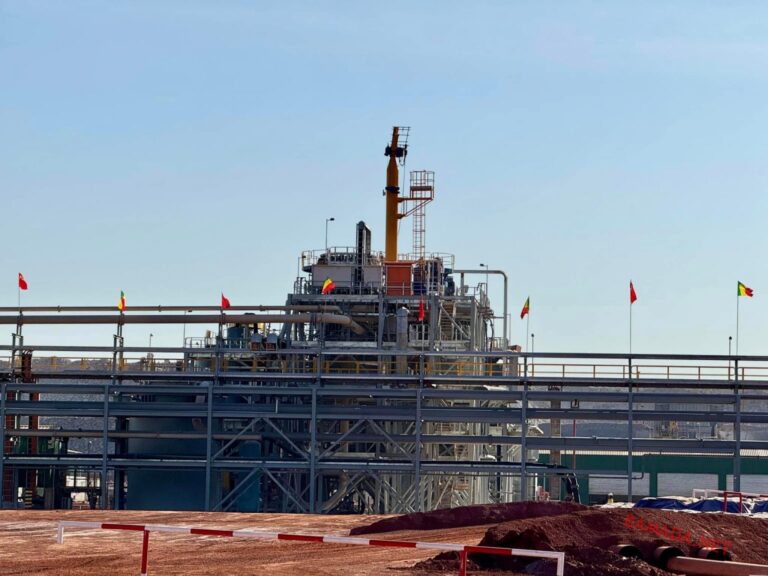Mali has reached a decisive milestone in its economic development with the launch, on Sunday, December 15, 2024, of the Goulamina lithium mine, located in the Bougouni region.
The inauguration ceremony of the Goulamina mine, chaired by General Assimi Goita, president of the Malian transition, marks the country’s entry as a major producer of lithium, an essential component for electric vehicle batteries.
The Goulamina mine is recognised as one of the largest lithium deposits in the world. With an estimated lifespan of more than 23 years, it plans to produce 500,000 tons of spodumene concentrate annually, a primary source of lithium. This capacity positions Mali as a major player in lithium production, meeting a constantly increasing
global demand, particularly due to the rise of green technologies and electric vehicles.
The project is 65 percent owned by the Chinese company Ganfeng Lithium, one of the world leaders in the sector, while the Malian state holds 30 percent of the shares, and local investors the remaining 5 percent. This capital structure results from the new mining code adopted in August 2023, which aims to increase national participation in strategic mining projects.
The economic benefits for Mali are significant. The annual revenue generated by the mine is estimated at around 100 billion CFA francs (around $160 million). In addition, Malian companies should benefit from at least 51 percent of subcontracting contracts, representing a potential annual turnover of 250 billion CFA francs. These
opportunities should stimulate job creation and the development of local skills.
Part of the revenue generated by the operation of the mine will be dedicated to financing local infrastructure projects, particularly in the energy, transport and water sectors. These investments aim to improve the living conditions of local populations and support regional economic development.
The entry into production of the Goulamina mine propels Mali to the rank of leading lithium producer in West Africa. This strategic position allows the country to insert itself into the global value chain of clean technologies, thus strengthening its role in the global energy transition.
Also, the success of the Goulamina mine could attract more foreign investment in the Malian mining sector, particularly in the exploration and exploitation of other mineral resources. However, to do this, it is essential that the Malian government continues to promote transparent and sustainable management of its natural resources, in order to ensure that the profits from these projects benefit the entire population and contribute to the sustainable development of the country.
MD/Sf/te/fss/as/APA


